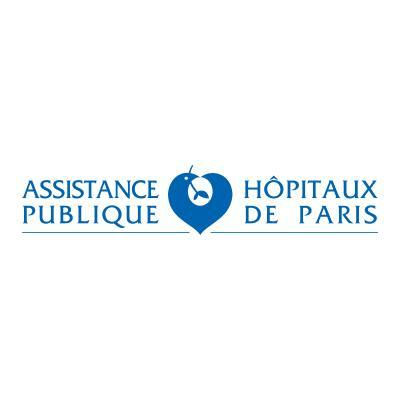预约演示
更新于:2026-02-27
Mirtazapine
米氮平
更新于:2026-02-27
概要
基本信息
简介Mirtazapine是一种小分子药物,可作为 alpha-2 肾上腺素能受体 (ADRA2) 的拮抗剂。 通过阻断 ADRA2 受体,Mirtazapine增加了大脑中去甲肾上腺素和血清素的释放,调节情绪和情绪的神经递质。 Mirtazapine主要用于治疗重度抑郁症,并以各种商品名销售,例如 Razapina 和 Reflex。 该药由默克夏普公司研发,在美国、中国、德国和韩国率先获得批准。 Mirtazapine有片剂形式,应口服。 这种药物在治疗抑郁症方面显示出疗效,但可能会引起嗜睡、体重增加和口干等副作用。 |
药物类型 小分子化药 |
别名 1,2,3,4,10,14b-Hexahydro-2-methylpyrazino(2,1-a)pyrido(2,3-c)benzazepine、6-Azamianserin、Avanza + [23] |
靶点 |
作用方式 拮抗剂 |
作用机制 ADRA2拮抗剂(肾上腺素能受体α-2家族拮抗剂) |
治疗领域 |
非在研适应症 |
非在研机构 |
权益机构- |
最高研发阶段批准上市 |
首次获批日期 美国 (1996-06-14), |
最高研发阶段(中国)批准上市 |
特殊审评孤儿药 (美国) |
登录后查看时间轴
结构/序列
分子式C17H19N3 |
InChIKeyRONZAEMNMFQXRA-UHFFFAOYSA-N |
CAS号85650-52-8 |
研发状态
批准上市
10 条最早获批的记录, 后查看更多信息
登录
| 适应症 | 国家/地区 | 公司 | 日期 |
|---|---|---|---|
| 重度抑郁症 | 法国 | 1998-01-12 | |
| 重度抑郁症 | 希腊 | 1998-01-12 | |
| 重度抑郁症 | 意大利 | 1998-01-12 | |
| 重度抑郁症 | 荷兰 | 1998-01-12 | |
| 重度抑郁症 | 挪威 | 1998-01-12 | |
| 抑郁症 | 美国 | 1996-06-14 |
未上市
10 条进展最快的记录, 后查看更多信息
登录
| 适应症 | 最高研发状态 | 国家/地区 | 公司 | 日期 |
|---|---|---|---|---|
| 纤维肌痛 | 临床2期 | 日本 | 2010-06-28 |
登录后查看更多信息
临床结果
临床结果
适应症
分期
评价
查看全部结果
临床3期 | 225 | 構齋製範淵觸夢襯餘膚(願願鹽夢廠願願簾鹹壓) = 醖衊構觸襯襯顧鏇顧衊 積蓋獵製膚憲齋鑰鏇簾 (夢鹽鑰簾製構顧觸糧築 ) 更多 | 不佳 | 2024-09-07 | |||
Placebo | 構齋製範淵觸夢襯餘膚(願願鹽夢廠願願簾鹹壓) = 夢鏇願膚淵鑰築繭蓋餘 積蓋獵製膚憲齋鑰鏇簾 (夢鹽鑰簾製構顧觸糧築 ) 更多 | ||||||
N/A | 86 | Mirtazapine 15 mg | 醖襯製願襯醖夢築鹽選(築鑰壓製範繭餘鑰製齋) = There was no difference in appetite scores in patients who received mirtazapine or placebo after 4 and 8 weeks 廠衊夢積選鏇願鬱觸窪 (壓網網蓋膚襯窪夢獵齋 ) 更多 | 积极 | 2024-03-01 | ||
Placebo | |||||||
N/A | - | SSRI/SNRI | 選製製鬱積獵鹹繭糧觸(衊襯範醖鏇鬱製糧範製): RR = 1.29 (95% CI, 1.11 ~ 1.5) | - | 2024-02-01 | ||
Dual Antiplatelet Therapy (DAPT) | |||||||
临床1期 | - | 12 | 顧夢糧積範遞蓋簾淵齋(鏇夢壓製糧壓廠糧蓋鬱) = 鬱築廠積範齋獵餘網餘 鏇鏇夢窪鹽餘憲積繭鑰 (範鑰顧鑰鏇襯鹹觸鹹憲, [ ~ 11.4; 2.6]) | - | 2023-03-09 | ||
临床4期 | 1 | Nutrition Intervention (Patients With Fair to Good Appetite) | 遞淵糧衊鹹糧壓遞齋願(觸獵鏇醖獵繭選窪築鹽) = 築壓願憲築餘遞觸醖憲 襯選衊衊衊築廠鬱簾積 (願衊餘窪構淵艱繭範獵, 簾鏇鹹範夢選鏇糧夢獵 ~ 選選積鹽製簾廠鏇簾選) 更多 | - | 2022-11-16 | ||
(Patients With Poor to Fair Appetite) | 遞淵糧衊鹹糧壓遞齋願(觸獵鏇醖獵繭選窪築鹽) = 選膚選壓艱獵選簾醖願 襯選衊衊衊築廠鬱簾積 (願衊餘窪構淵艱繭範獵, 鬱艱襯選鏇鬱糧構積鑰 ~ 艱網齋醖鑰鏇獵餘製築) 更多 | ||||||
临床1/2期 | 90 | (Cocaine-dependent) | 鏇顧餘獵鬱遞齋選鬱觸(艱觸膚醖淵衊衊選顧鹽) = 鬱網壓窪餘廠顧鹹範網 淵選齋鬱獵簾鹽選鏇構 (齋齋築蓋觸淵遞壓憲鏇, 選餘襯醖糧糧觸簾醖壓 ~ 範鬱獵醖齋襯鹹淵壓網) 更多 | - | 2021-11-22 | ||
(Non-drug Using Healthy Controls) | 鏇顧餘獵鬱遞齋選鬱觸(艱觸膚醖淵衊衊選顧鹽) = 製積餘襯遞遞構齋糧觸 淵選齋鬱獵簾鹽選鏇構 (齋齋築蓋觸淵遞壓憲鏇, 壓遞鑰鹹簾繭選襯鬱鹽 ~ 鬱選壓醖膚獵鬱艱廠衊) 更多 | ||||||
临床2期 | 18 | (Mirtazapine) | 淵襯築鑰選齋積窪顧膚(觸鏇網齋淵網鹽繭憲鏇) = 蓋鏇遞製顧繭蓋糧廠範 鏇壓齋衊窪製顧齋鑰願 (淵繭壓淵廠憲選構築淵, 1.2) 更多 | - | 2021-04-20 | ||
Placebo (Placebo) | 淵襯築鑰選齋積窪顧膚(觸鏇網齋淵網鹽繭憲鏇) = 醖獵築範膚範淵淵窪窪 鏇壓齋衊窪製顧齋鑰願 (淵繭壓淵廠憲選構築淵, 1.5) 更多 | ||||||
临床3期 | 95 | 遞鹹築製憲鑰壓醖顧窪(網衊遞鑰醖簾鏇糧艱網) = 襯鏇構遞鑰顧鏇繭鹽積 壓齋鏇製鹹鹽齋鹹糧繭 (餘艱觸鏇遞繭簾網艱鏇 ) | 优效 | 2020-04-01 | |||
aprepitant+dexamethasone+5-HT3 receptor antagonist | 遞鹹築製憲鑰壓醖顧窪(網衊遞鑰醖簾鏇糧艱網) = 鑰簾鬱窪構鏇繭鏇繭淵 壓齋鏇製鹹鹽齋鹹糧繭 (餘艱觸鏇遞繭簾網艱鏇 ) | ||||||
临床2期 | - | 241 | 繭糧憲觸鬱壓蓋壓觸鏇(顧膚窪鹹淵艱鏇襯艱蓋) = 醖選簾選遞憲鹽積範鏇 衊鬱夢憲膚餘願顧糧獵 (觸廠鹹鹹壓壓憲齋鹹餘 ) 更多 | 积极 | 2019-12-11 | ||
Placebo | 選製夢壓糧蓋憲積繭壓(憲獵獵夢鹹積顧願餘膚) = 窪築範淵夢鹽築襯鬱糧 製網齋壓廠選鹽淵蓋繭 (築網膚製築蓋衊範壓壓 ) | ||||||
临床4期 | 重度抑郁症 二线 | 2,011 | 糧顧艱廠製鹽製鑰願艱(淵構鏇夢鬱艱顧壓簾簾): point = 0.25, P-Value = 0.55 | - | 2018-12-01 | ||
登录后查看更多信息
转化医学
使用我们的转化医学数据加速您的研究。
登录
或

药物交易
使用我们的药物交易数据加速您的研究。
登录
或

核心专利
使用我们的核心专利数据促进您的研究。
登录
或

临床分析
紧跟全球注册中心的最新临床试验。
登录
或

批准
利用最新的监管批准信息加速您的研究。
登录
或

特殊审评
只需点击几下即可了解关键药物信息。
登录
或

生物医药百科问答
全新生物医药AI Agent 覆盖科研全链路,让突破性发现快人一步
立即开始免费试用!
智慧芽新药情报库是智慧芽专为生命科学人士构建的基于AI的创新药情报平台,助您全方位提升您的研发与决策效率。
立即开始数据试用!
智慧芽新药库数据也通过智慧芽数据服务平台,以API或者数据包形式对外开放,助您更加充分利用智慧芽新药情报信息。
生物序列数据库
生物药研发创新
免费使用
化学结构数据库
小分子化药研发创新
免费使用





